Strategic pendulum. Part of 3
3-I army attacked Lviv, 8-I Galich.
On the Galich-Lviv direction from 7 to 12 August opponents converged. Fighting vanguard and equestrian units. In the first battle of the Russian 3 army on the river Seret near the village. The Bug Uhlan regiment, supported by the 16 th cavalry battery, attacked the 13 th Uhlan regiment and the 35 th company of the landwehr regiment of the enemy and dropped them with the loss of the Austro-Hungarians 100 man. 8 August The 10 Cavalry Division of the 3 Army in a cavalry battle defeated the enemy's 4 Cavalry Division, capturing 160 prisoners and 8 cavalry guns. Russian cavalry in this battle showed "special art and valor" [White A. Galicia battle. C. 162.]. Russian losses - 150, Austrians - more than 820 people [According to other data - about 250 man of captured cavalrymen and about 400 man infantrymen, several hundred more people were killed and injured. See: A. Slivinsky. Equestrian Battle of the 10 Cavalry Division of General Count Keller 8 / 21 August 1914 near the village of Yaroslavitsy. Serbia, 1921. C. 23.].
Successfully acted and other cavalry formations. N.N. Golovin wrote: “Summing up the work of the cavalry of General Ruzsky, we see that during 10 (23), 11 (24) and 12 (25) she cleared the space in front of infantry divisions moving forward, drove the enemy cavalry away. On the flanks, she approached the frontiers of the Bug and Zolotoy Lipa rivers, taking ferries from Kamenka Strumilov and Shumlyany. In the center she approached the river Rotten Lipa ... " [Golovin N. N. The Battle of Galicia. The first period. C. 192.].
13 August F. Konrad von Götzöndorf, wanting to gain time, ordered the Russian offensive to be stopped with a short counterstrike: the Russian 3 and Austrian 3 armies fought on the X.UMN-13 in August. Golden Linden
It proceeded quite tensely, mutual areas and detours were practiced. Thus, the Austrian 2 Infantry Regiment tried to cover the flank of the Russian 121 Regiment, but, in turn, was attacked in the flank of the 122 Infantry Regiment. A fierce bayonet battle took place in the forest - the soldiers of the 122 regiment overthrew the Austrians, capturing many prisoners, including the wounded commander of the 2 regiment. The 122 regiment lost 215 people killed and wounded and 53 people missing [Shafalovich F. Counter-fight 10 th army corps. C. 49.]. The left flank of the 31 Infantry Division was secured, but the situation on the right flank of the formation continued to remain critical - until the 124 Infantry Regiment, supported by the 2 Artillery Division, did not drop the enemy.
The counter battles proceeded with varying success, the Austrian personnel units proved to be a formidable opponent, the high fighting spirit of which was confirmed by an insignificant number of prisoners. Great were and losses. In the 6 Infantry Division they reached up to a third of the rank and file and half of the commanders. The corps commander reported that his troops could barely keep their positions. So, in the 13 battle of August, at the Prince (the 9 corps section), the Russian 42 division defeated the Austrian 25 division, losing about 1550 people and capturing only up to 400 prisoners, 6 guns and 2 machine gun [White A. Decree. cit. C. 172.]. N.N. Golovin wrote about the capture of more than 2 thousand Austrian prisoners, 12 light guns, 4 howitzers, an infirmary with the wounded, a large number of machine guns during the loss of the 42 division to 20% of the squadron [Golovin N. N. Decree. Cit. C. 319.]). At the site of the 58 Infantry Division, the enemy (a brigade of the Austrian 6 Infantry Division) resisted fiercely, engaging in bayonet fights. The results were the tactical flexibility of the Austrian command, as well as the use of 150-mm guns by the Austrians in a field battle.
28. Austrian infantrymen in a trench.
However, success leaned toward the Russian weapons. For example, parts of the Russian 11 Corps smashed 14 August 93-th landscape team (lost by prisoners alone to 3,5 thousand people and 32 guns; 11 body lost 4640 people).
In the offensive zone of the 10 Corps (left flank of the 3 Army), the Austrians strengthened beyond the r. Golden Lipoi - at Tsimerzhintsa, having prepared several tiers of trenches. Only bypassing the enemy with neighboring units forced the Austrians to withdraw.
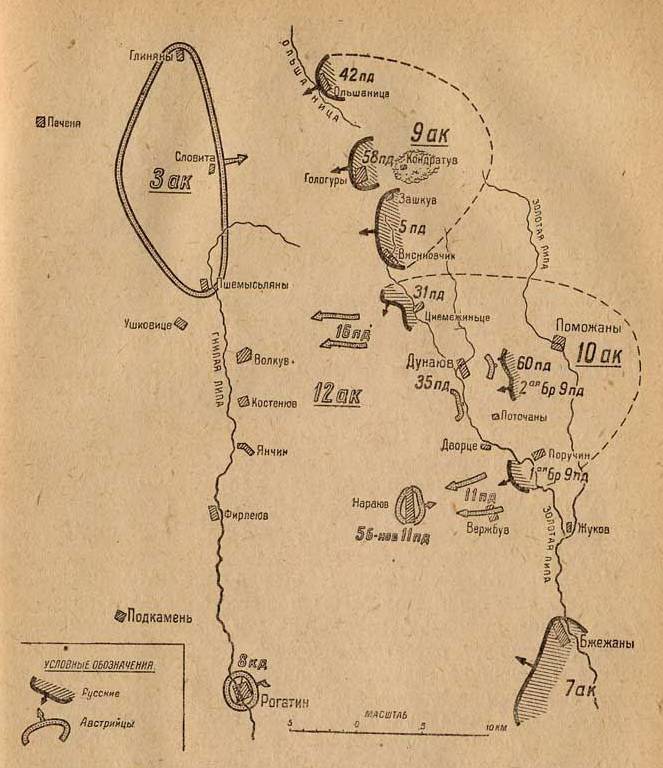
5 card. Battle on the Golden Lime. The left flank of the Russian 3 Army of August 14.
Since August 15, the army of R. Bruderman, who has begun to withdraw, has been pursued.
Thus, 13 - 15 August on p. The Russian 3 Golden Lipa defeated the Austrian 3 Army - for the first time during the Battle of Galicia, Austro-Hungarians were defeated and retreated, suffering heavy losses. They were crushed by the first serious setbacks.
29. Russian infantry in Galicia.
In addition to the lack of focus of the Austrian forces on this sector of the front, as well as the weaker quantitative composition compared with the Russians, a significant factor in the defeat of the Austrian 3rd Army was that the 14th Army Corps was transferred to the 4th Army, and in return 3 I army received land-assault formations. There was also inconsistency in actions. Cavalry and aviation Austrian 3rd Army in the intelligence respect showed themselves poorly. In addition, with the high quality of both the Russian and Austrian infantry, who did not give in to large losses and often converged with hostility, the Russian artillery more effectively helped their infantry, being an important factor in victory. The enemy troops showed inability to conduct battles in the conditions of retreat, during which they lost a lot of people prisoners (for example, the 93rd Landshturn brigade lost up to 2% of the prisoners in 25 days of battle).
30. Episode Cavalry battle.
The Austrian command focused only on the fact that, as part of the 3 Army, Slavic units comprised up to 35% of its composition, and, starting from the period of the battles on r. Rotten Lipa, began to dilute the Slavic contingents of this operational association with the Hungarian and Romanian marching battalions. But the main reason for the defeat of the enemy was not the national composition of the army, but the general superiority of the Russian forces on the southern flank of the battle.
31. Austrian heavy cannon on the march.
Subsequent battles of the Russian 3 Army proceeded in cooperation with the troops of the 8 Army. The Austrian 12 corps suffered heavy losses in these battles - no more than 20 thousand soldiers remained in its three divisions, that is, less than 50% of its composition. The failure of the 12 Corps led to the withdrawal of the Lviv and neighboring divisions of the 3 Corps.
32. Landturmists.
The Austrians, by regrouping and counterattacking, are trying to turn the tide, which led to intense battles. For example, the Perevolochensky regiment of the Russian 21 corps in the 17 August battle lost 23 officer and up to 750 of the lower ranks, destroying over a thousand and capturing several hundred Austrians. 17 August 10-I cavalry division captured 4 howitzers of the Austrians, parts of the 7-corps - more than 1 thousands of prisoners and a lot of machine guns.
The enemy command underestimated the power of the Russian 8 Army, which initially advanced without encountering much resistance. August 10 Russians occupied Tarnopol.
33. Russian soldiers near the Galician town.
On August 15, Commander-8 A. A. Brusilov began advancing to the north-west — moving closer to the 3 army and, after a forced march, inflicted a defeat on the Kevess von Kevessgaz group in Podgaitsev. The troops of A. A. Brusilov on Rotten Lipa attacked the flank of the enemy opposing the 3 Army.
The battles on the Golden and Rotten Limes were won by the Russians.
On August 16, the troops of the 8 Army in front of Rogatin first fought the Austro-Hungarian 2 Army, which was transferred from the Serbian Front. Despite the reinforcement of R. Bruderman’s army with reserves and the arrival of E. Böhm-Ermolli’s 2 army corps, the Russian corps broke through the Austrian center and forced the enemy to begin withdrawing to Lviv. The 2 Army I arrived late, its units were brought into battle alternately, which did not lead to a turning point. By eliminating a breakthrough from the Ore, A. A. Brusilov defeated the enemy with the blows of the 7 corps under Yancin, the 12 corps at Rogatin and Firleyuv, and the 8 corps at Zelibor.
The tension of these battles and the special persistence of the Austrians are evidenced, for example, by the fact that Rogatin had 19 Infantry Division 12 of the 8 Army Corps for the 2 of the day lost up to 50% [An eyewitness wrote about the Rogatin battles: “The adversary — this was the newly driven Throwed Division — persisted and, introducing new units, tried to attack, but withstand the fire of our valiant 19 Infantry Division, which still had many colors of personnel infantry, excellent shooters , paralyzed all the attempts of the fierce Honved. The fire on both sides reached extreme tension. Losses were sensitive; many were killed, which is explained, as mentioned, by excellent shooting of the first-line infantry ... Against the 15 of the Kuban company of Captain Mustapan ... in the distance of 1200-1500 steps, two enemy machine guns emerged from the corn, but, noticed in time, they could not open fire: the accurate fire from the shooters of the 15 company did not allow it; On the morning of 18, when we moved forward, we found these machine guns - they still stood, even with nested ribbons, but all the numbers of machine gunners were right there, killed by rifle fire. ” Golovin N.N. The Battle of Galicia. The first period. C. 486]. The 8 Army Corps was repeatedly attacked by the enemy, but after the approach of the 48 Division the Austrians began to retreat, leaving the 31 gun.
In total, during these battles, A. A. Brusilov’s troops captured prisoners and 20000 guns before 70.
6 card. Battle on Rotten Lipa. Dates on the map - a new style
21 August was taken Lviv, and 22 August G. Galich. August 24 The 8 Army Corps entered Mykolaev.
34. Lviv. Photo 1914
The Galich-Lvov operation seriously changed the situation in the south-western strategic direction. The troops of the two armies of the enemy were defeated and their attempts to hold down the Russian armies and cover the right flank of their strike group were thwarted. Austrian troops suffered huge losses in men and weapons (for example, the Austrians lost only more than 10 thousand people and 50 guns only on the Golden Lipa) and lost important strongholds. The victory also had an important psychological significance, since it occurred at the moment when the troops of the Entente in France were defeated.
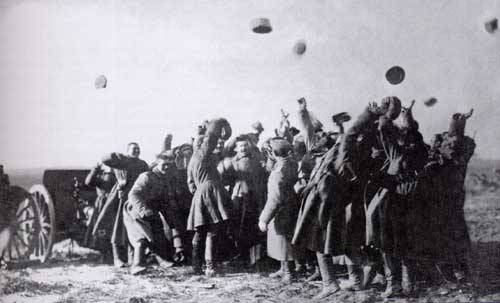
35. Lvov is ours!
36. The entry of Russian troops in Lviv.
37. Russian on the streets of Lviv.
38. Russian troops at the Lviv station.
The operational environment has changed.
The 3-I and 8-I armies, victoriously advancing, went out on the rear of the 1-th and 4-th armies of the Austrians, threatening them with defeat. F. Konrad von Gettsendorf addressed the Chief of the German General Staff with a request to transfer at least 2's of the German corps to Peremyshl - but the Austro-Hungarian request was ignored.
The failure on the southern flank and the indecisive result of the fighting on the northern forced the Austrian command to carry out a reshuffle with the weight of its efforts against the southern armies of the South-Western Front. The plan of F. Conrad von Gettsendorf at this stage of the battle led to the concentric offensive of the 3's of the Austro-Hungarian armies in the Lvov region. F. Konrad Gettsendorf intended to crush the left flank of the Southwestern Front and liberate Lviv.
He tried to gather some forces in the Rava-Russkaya area, providing the rear of M. Auffenberg's 4 Army. The troops of the latter were divided into a “group of prosecution”, which should pretend to be the main forces, pursuing the army of P. A. Plehve (group of Archduke Joseph Ferdinand — 3 infantry and 1 cavalry divisions) and “maneuvering group” (main forces of the 4 army) , redirected to the Lviv direction. F. Conrad von Gettsendorf planned with the forces of three armies (4, 3, 2) to defeat two southern Russians (3, 8), leaving only a barrier in the north (1-I, Joseph's group Ferdinand) against the Russian 4 and 5 armies. The next turn of the “pendulum” came - now the question was who would have time to smash their opponent: the southern armies of the South-Western Front - to hold out against the main forces of the Austrians or 4, 5 and concentrated 9-army - Austrian barrier. The correlation of forces changed - in the north, the strength of the Russians was reduced to the 28-m of infantry divisions, while the strength of the Austrians dropped to the 19-ty infantry divisions. But on the Lvov direction, Austro-Hungarians assembled 30 infantry divisions against Russian 22 infantry divisions. Gorodok battle unfolded.
The specifics of the deployment of opponents before this battle was that, on the one hand, the troops of both sides already suffered significant losses (the level of which in different armies of the opponents was unequal and depended on the configuration of their participation in the battle, as well as the degree of success of such participation - for example , in the strongest and most successful Austrian 4 army, there remained no more than 75% of the composition, the weakest were 6 army (after replenishment in its companies there were no more 150 people instead of 250) and 9 army corps (where in 26 st landvern oh divisions from the 5 regiments left the 5 battalions.) But, on the other hand, the deployment was completed, reserves and subordinate units approached.
A big setback for the Austrians was that the 2 Army, which was assigned the main task in the upcoming battle, was late in focusing on the 3 of the day. As far as it was significant for our enemy, is evidenced by the fact that 27 infantry and 6 cavalry divisions, which the enemy command was able to concentrate to the beginning of the Gorodok battle, 2 infantry and 11 cavalry divisions were in the 1 army. The delay also led to the fact that the Russian armies of the northern flank launched an offensive earlier. The troops of N. V. Ruzsky and A. A. Brusilov during the battle of Rava Ruska - Gorodka needed to hold out.
To be continued
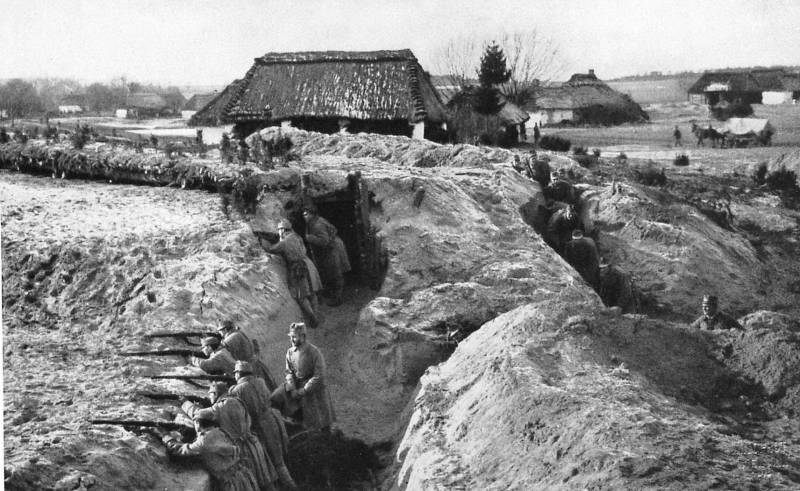
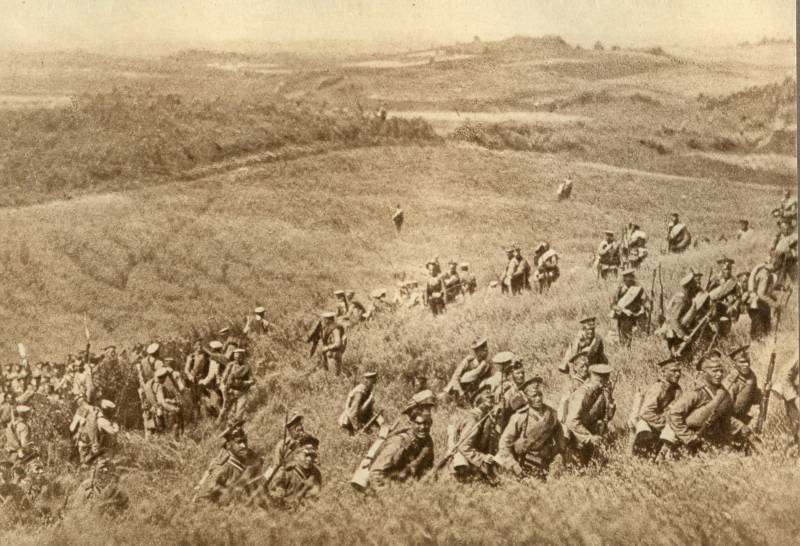
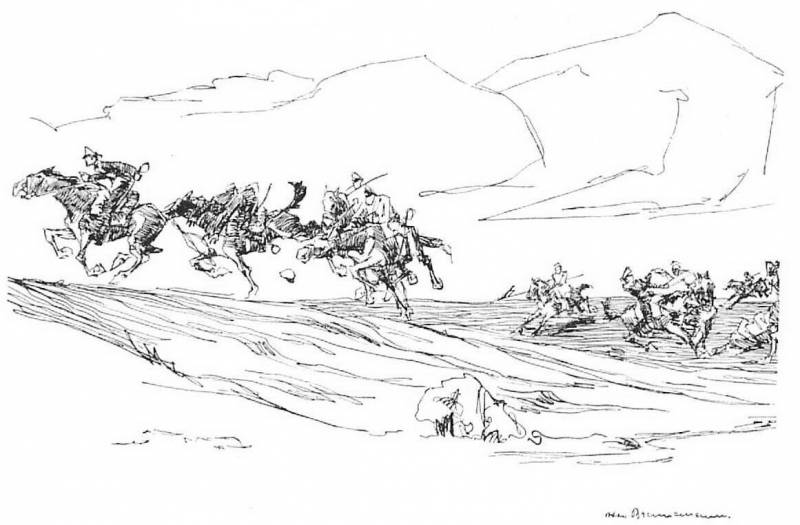
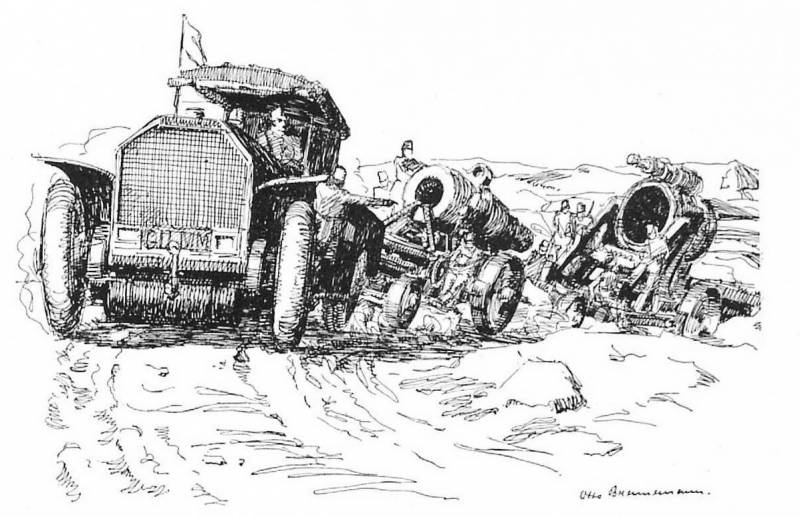
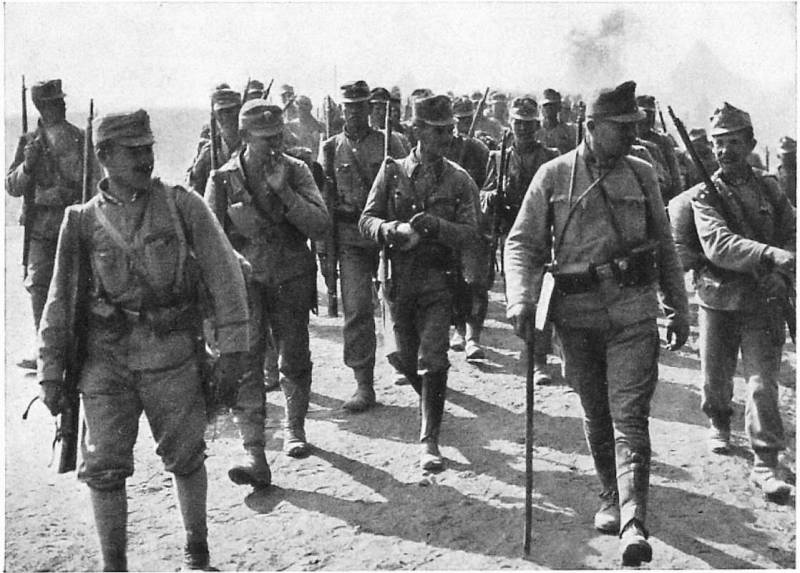
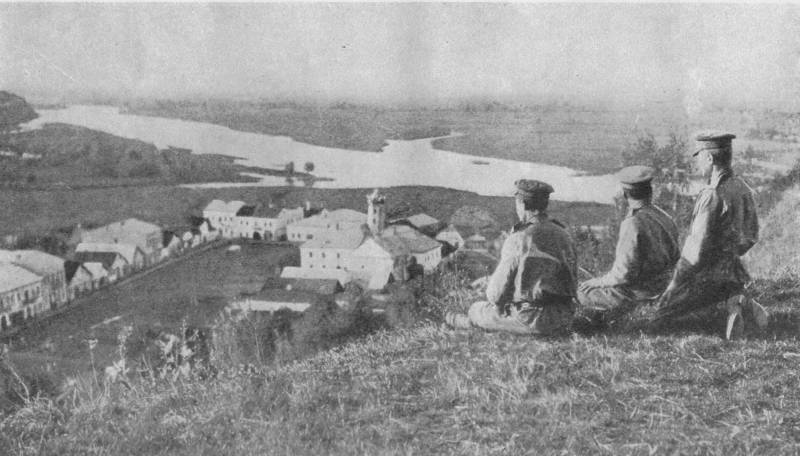
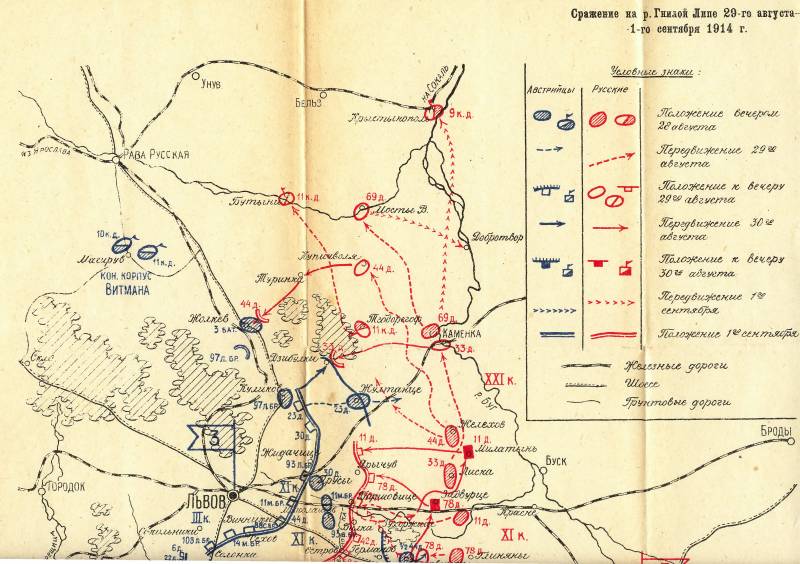
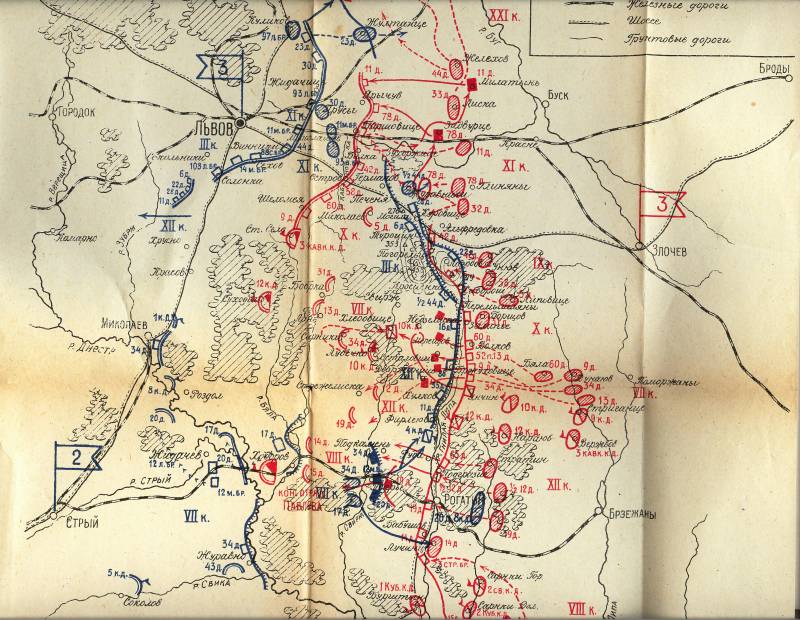
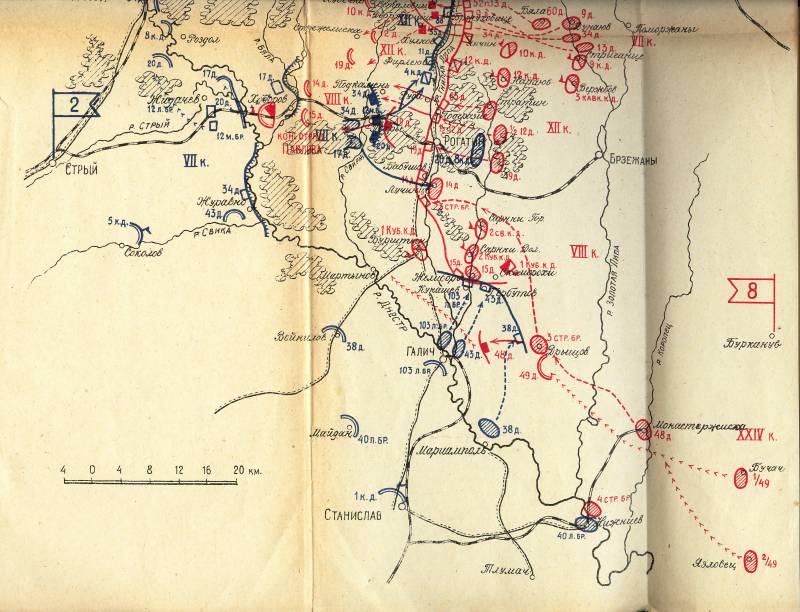
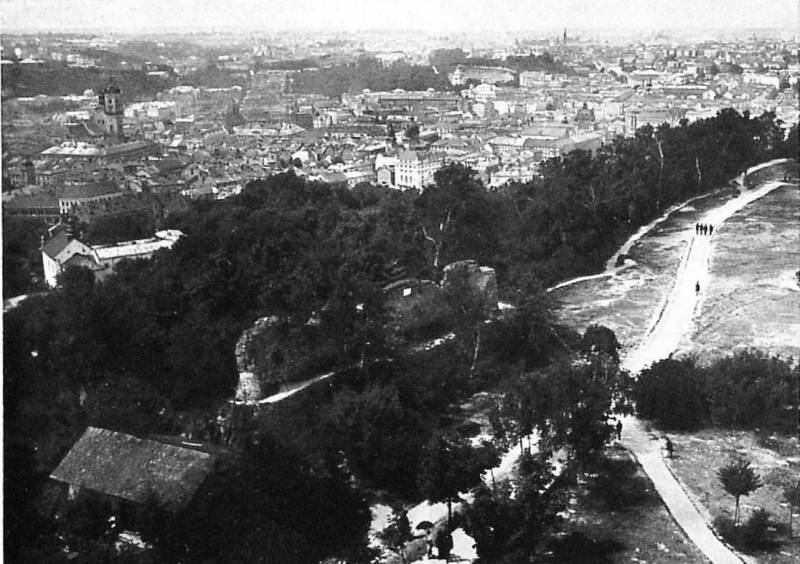
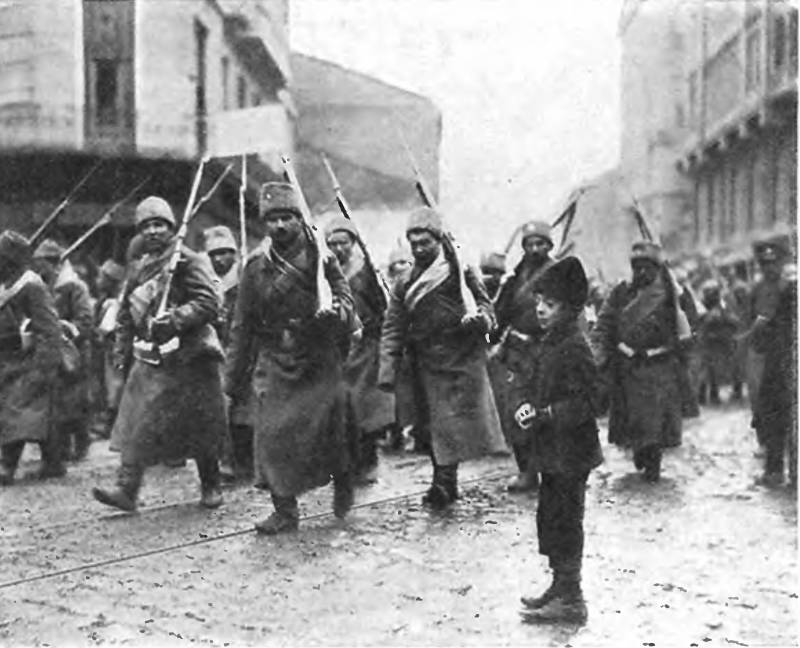
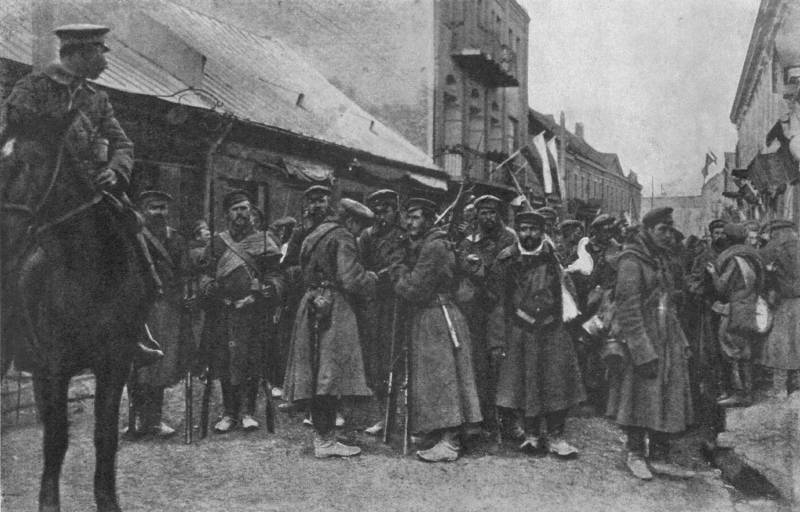
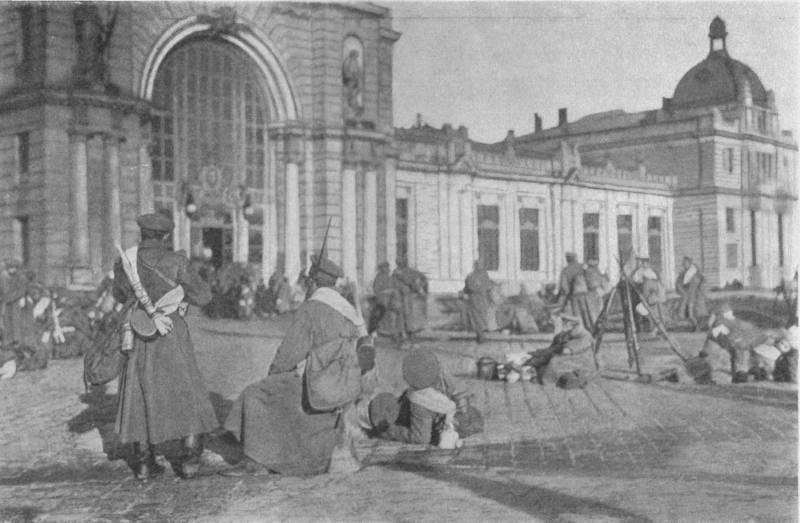
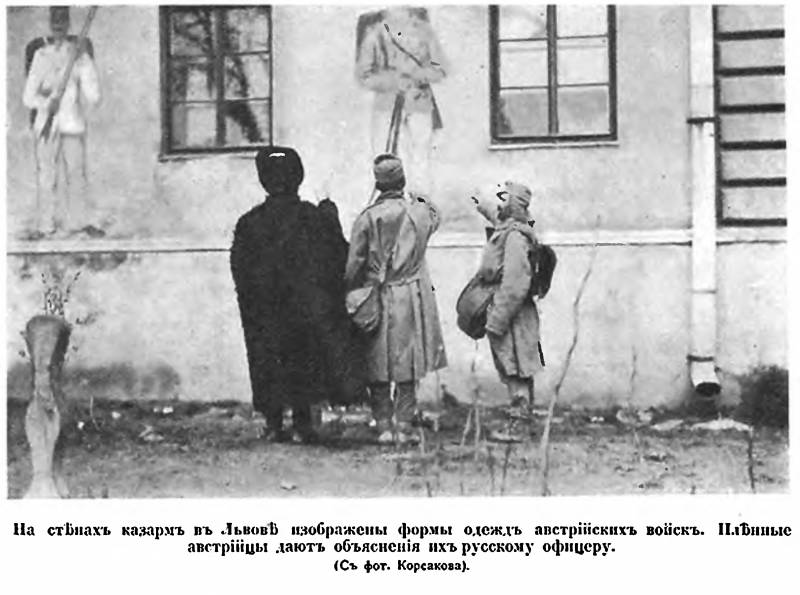
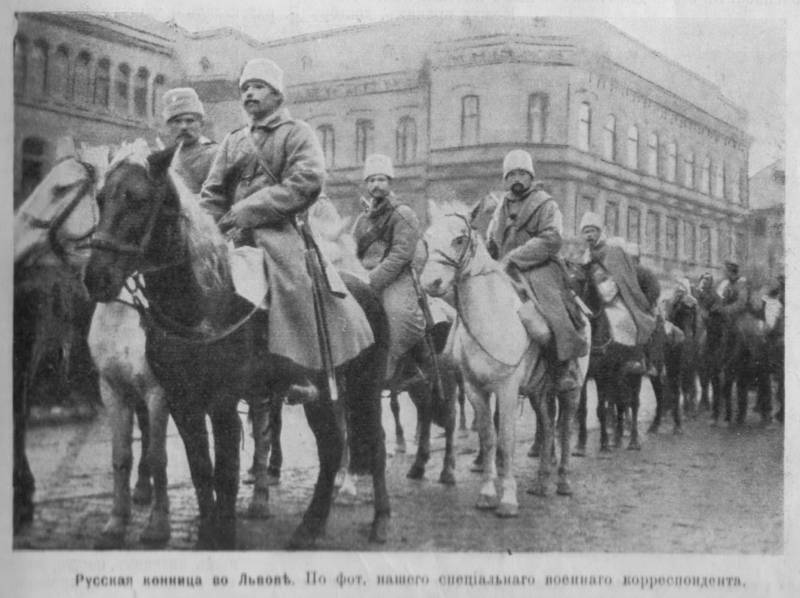
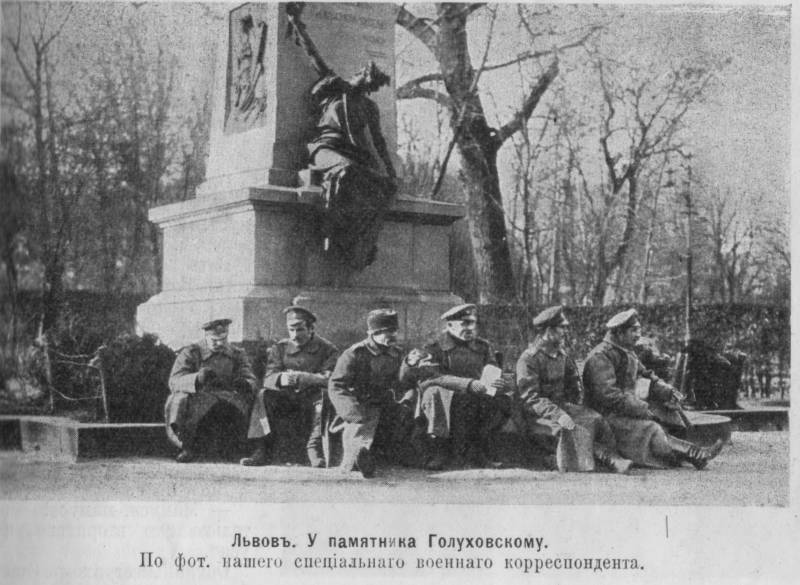
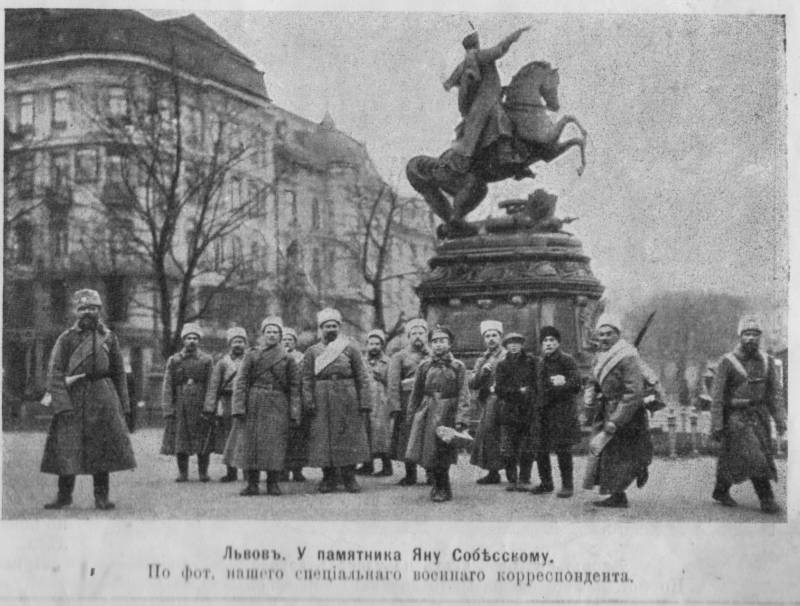
Information